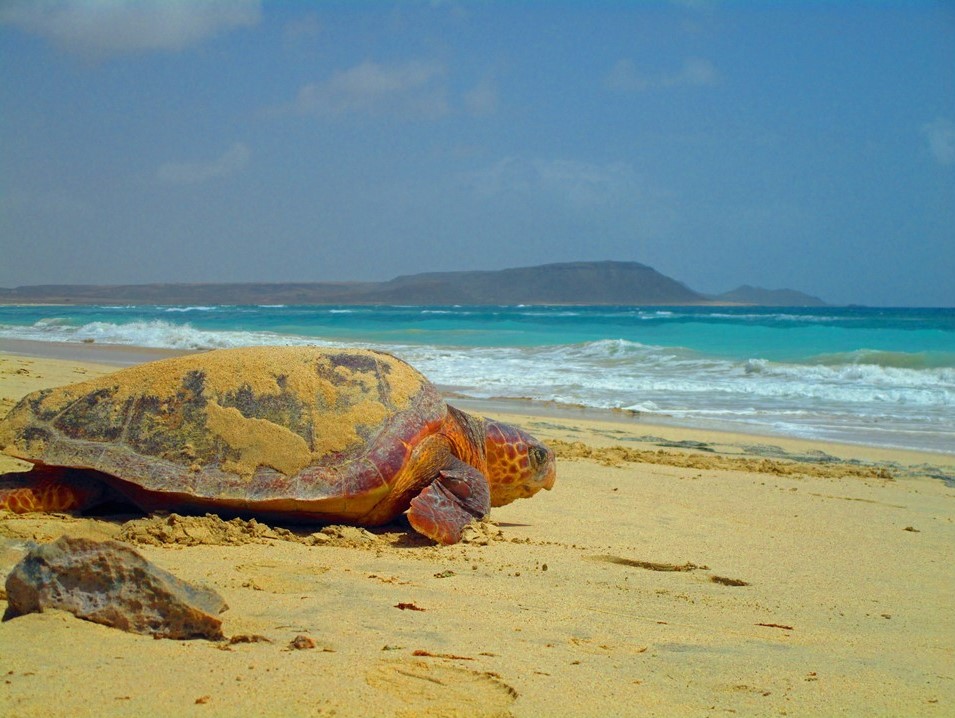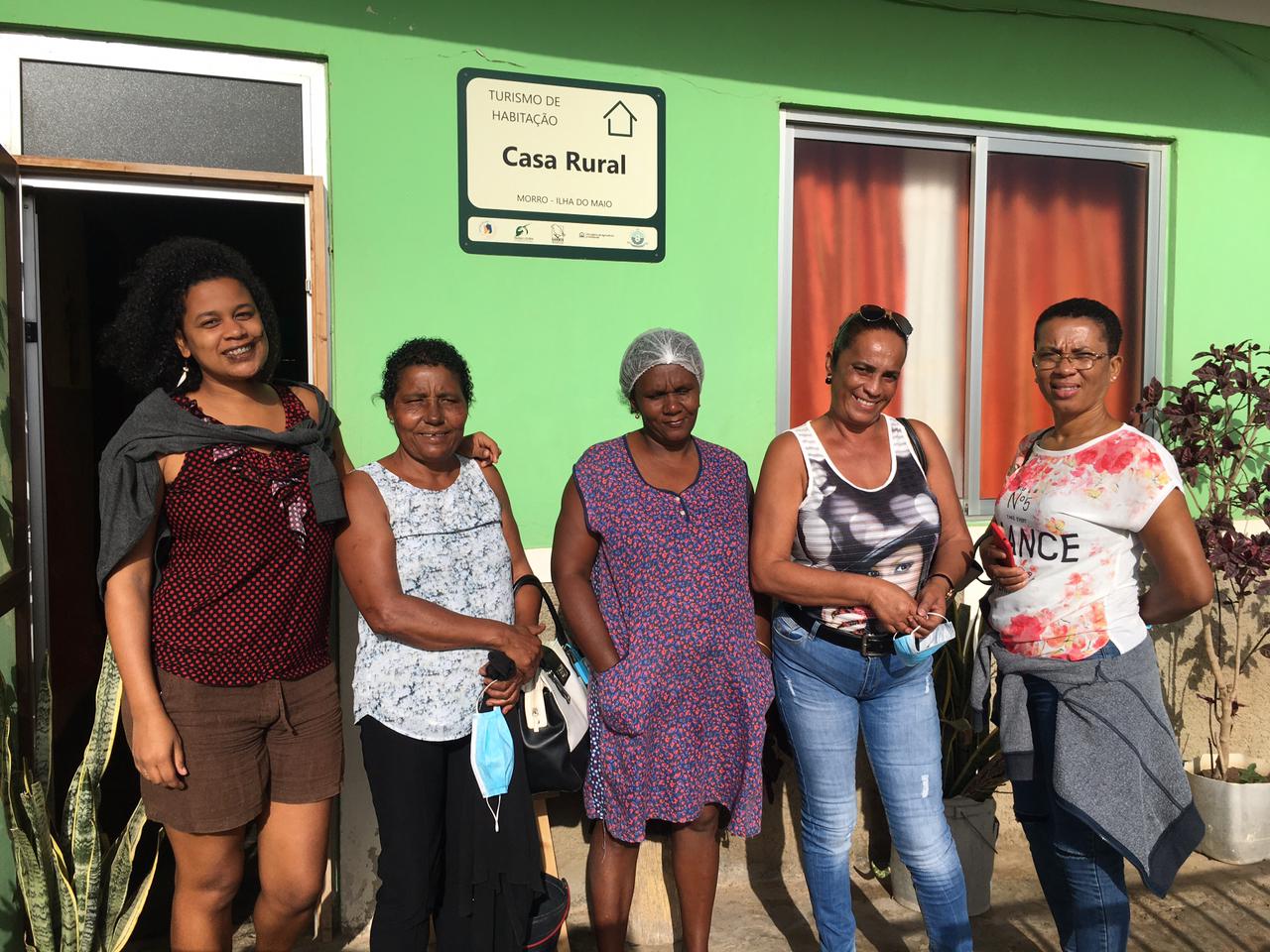
Promoting Community-based Conservation on the East Coast of Sal, Cabo Verde
Published on 16 December 2021Pedra de Lume is a quiet town on the island of Sal that almost seems frozen in the past. Once a hub of the salt mining industry, the main source of income for the community is now through artisanal fishing. Tourists visiting from the city of Santa Maria often bypass the town itself to explore the infamous salt mine located in the valley of a nearby dormant volcano and soak in the salt pools. Pedra de Lume also hosts 2 km of beaches where the endangered Loggerhead sea turtle comes to nest during the months of June through October every year. Despite the proximity to tourism and environmental activities, the community has historically remained disconnected from tapping into the economic opportunities tourism and conservation can provide. Additionally, sea turtle poaching incidences remained high on local beaches due to lack of local capacity.
In 2020, with support from PPI, Project Biodiversity set out to integrate tourism and wildlife conservation as a means for facilitating socio-economic growth in the community. At the start of the 2020 nesting season, the team recruited and trained community members tasked with patrolling the nearby nesting beaches, as well as relocating and monitoring endangered nests within the community-managed hatchery. During the total duration of the partnership, Project Biodiversity has trained over 11 staff members and 11 local volunteers to support the protection of over 237 nests and the release of 12,500 baby turtles in the local hatchery. In an effort to expand awareness and inspire connection to the local conservation activities, our team also organized several workshops and open forums to share and exchange information about ecosystems and wildlife for all members of the community to attend.
The more complex stage of our partnership was the development and launch of our Homestay program with the community, which focused on integrated local families into opportunities in the tourism sector. Over the course of the partnership three determined women learned the ins and outs of hospitality management, receiving extensive trainings and opportunities for personal development as well as upgraded rooms and facilities to host international volunteers. With the unexpected halt of tourism in 2020 due to COVID-19, the families welcomed their first volunteers in 2021. In addition to these volunteers participating in our conservation activities and engaging in daily life of the local families, each one also brought their own skills and knowledge to share with the community from leadership training to healthy cooking and nutrition classes.
With this phase having finished in April 2021, we’re excited to focus our efforts in the coming year on the development of a nearby area, treasured both for its ecological value and tourism potential. Baía da Parda, is a coastal zone in the northeast quadrant of the island, with the closest town, the community of Pedra de Lume, located at 3 kms on the north. The physical characteristics of the bay, with its shallow waters, make it possible to observe the lemon sharks from the coast or by taking short walks along the reef. This feature has been exploited by the tourism industry in recent years in Sal, making shark watching an important economic activity in the area, as well as one of the main touristic attractions of the island.
Currently, the socio-economic impacts of the lack of management of the tourism activities associated to shark watching results in direct disturbance for the sharks, precarious working, safety and health conditions for both community and visitors, unfair distribution of the revenue generated, and a poor experience for the visitors.
Over the next three years, with support from PPI, Project Biodiversity aims to revitalize the area to support better conditions for workers, visitors, and the critically important ecosystem. Activities will include:
– the direct protection of the endangered biodiversity of the area and the habitat, with a strong focus on the lemon sharks;
– the improvement of the working conditions of the people currently working in Parda Bay.
– the improvement of the overall touristic experience to ensure the success of the strategy at a long-term.
To get more information and follow our activities, please consult our website: www.projectbiodiversity.org and/or our Facebook page : https://www.facebook.com/projectbiodiversitycv
